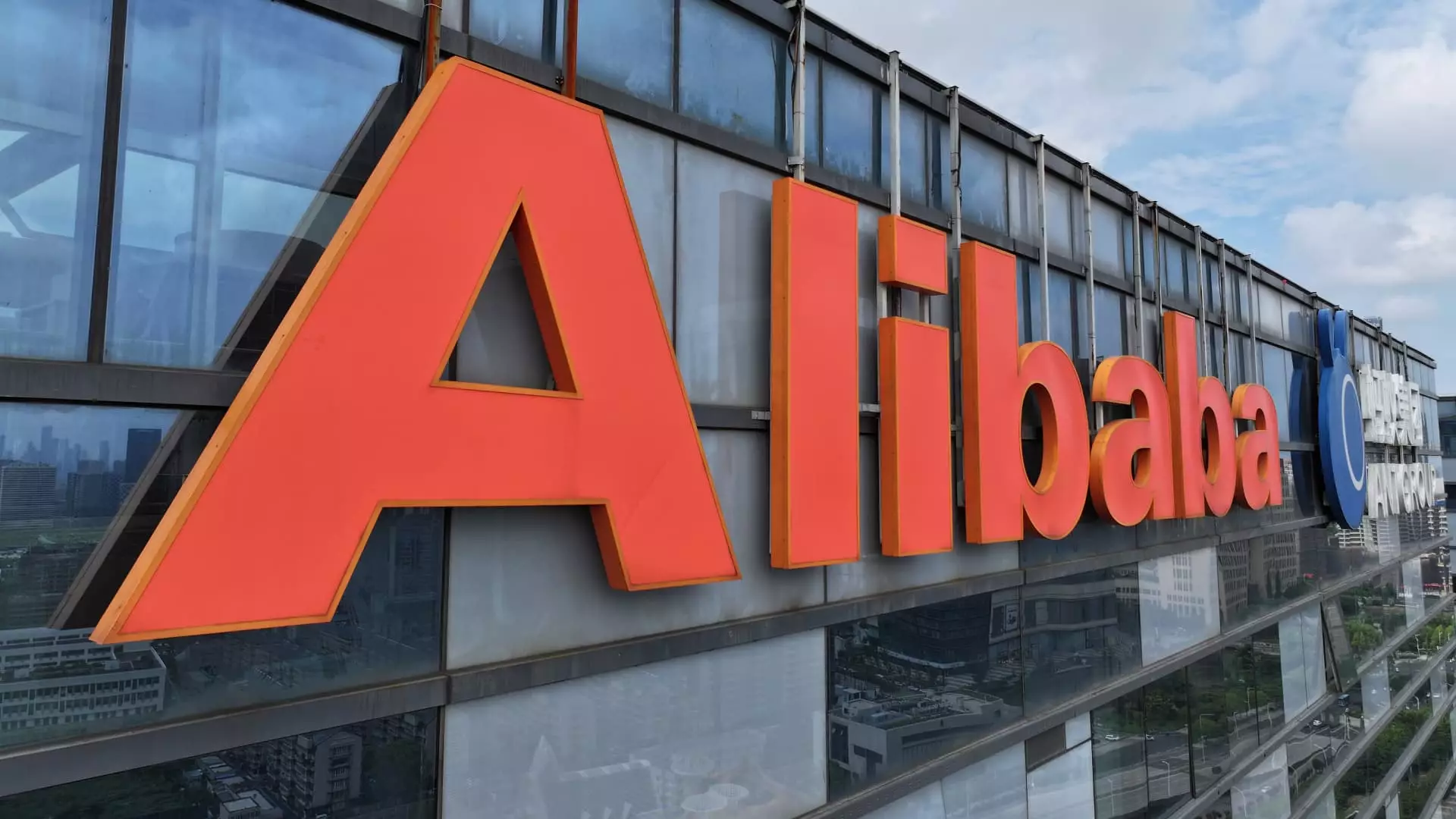Alibaba, the juggernaut of Chinese e-commerce, made waves this week when it announced the launch of its new AI reasoning model, QwQ-32B. This development comes at a pivotal moment when the global tech scene is abuzz with the remarkable innovations powered by artificial intelligence (AI). On Thursday, investors responded positively, propelling Alibaba’s stock price up by 8.39% in Hong Kong, culminating in a staggering 71% increase for the year. The narrative surrounding Alibaba is one of resilience and adaptation, as it seeks to reaffirm its position at the cutting edge of technology.
While Alibaba’s achievement is commendable, one must pause and consider whether it is enough. The QwQ-32B model employs 32 billion parameters, a number dwarfed by DeepSeek’s monumental 671 billion. This raises critical questions about the effectiveness and true robustness of Alibaba’s new offering when contrasted with global competitors. Is a model with fewer parameters a symptom of innovation or a sign of lower capacity? Efficiency in AI is critical, but does it come at the expense of potential? In a world when large language models (LLMs) have become indispensable across industries, the stakes are high.
The Race is On: Who Will Lead?
The AI race has transcended boundaries, with established tech giants like Microsoft, Google, and Amazon vying for dominance alongside emerging players like DeepSeek and Alibaba. This competitive atmosphere is akin to a high-stakes poker game, where the next move could catapult a contender to unprecedented heights or consign them to obscurity. The rise of QwQ-32B injects adrenaline into the game, but can Alibaba sustain this momentum? Analysts predict that burgeoning optimism surrounding AI might bolster Alibaba’s stock, with Bernstein suggesting that the company is on a trajectory of upward growth. However, it is essential to remain skeptical; the history of technological advancements tells a story fraught with overconfidence often dashed by unforeseen developments.
Traditionally, the prowess of an AI model is measured not just by its size but also by the quality of its predictions and its learning efficiency. Alibaba’s claim that QwQ-32B exhibits “impressive results” throws a spotlight on its capacity to improve in critical areas such as math and coding. Yet, the bar has been set incredibly high—a mere performance boost would not be sufficient to disrupt the incumbents. Moreover, as the AI landscape becomes increasingly commoditized, it is arguable that all players need to innovate at a blistering pace—there’s little room for complacency.
Investing in the Future: Barriers and Opportunities
CEO Eddie Wu’s assertion that Alibaba’s Cloud Intelligence unit is a central driver of profit growth cannot be understated. The intersection of AI and cloud computing holds promise; however, with great potential comes significant risk. Investing heavily in R&D for AI technologies is a double-edged sword—while it may reap substantial rewards, it also requires substantial resources. For Alibaba, staving off competition will demand consistent and substantial investment.
Moreover, the failure to perform effectively could hinder Alibaba’s ambitions in the global sector. With analysts like Dan Newman calling attention to the rapid pace of innovation, the pressure on Alibaba to deliver on its promises becomes palpable. The statement “the pace of innovation is incredibly fast right now” holds weight; the undercurrent of AI development operates on a level where timing is everything.
While Alibaba showcases its groundbreaking advancements, a lurking concern arises: Are they too focused on output rather than the impacts of that output? The commoditization of LLMs could initiate a race to the bottom. AI technology, if not strategically implemented, risks becoming just another trend—overhyped and underdelivered.
Will Alibaba Stand the Test of Time?
As Alibaba moves forward with QwQ-32B, the company must navigate a landscape riddled with challenges and opportunities. Their recent surge is more than just a change in stock price; it’s a clarion call for innovation in an overcrowded market. Whether Alibaba can elicit a shift in the paradigm of AI development remains uncertain. The stakes are high, and the competition is fierce; only time will tell if Alibaba’s bravado leads to lasting success or serves as a cautionary tale of market hubris.

